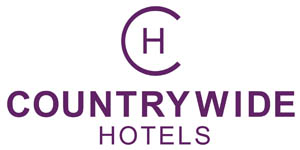By Ken Dulieu, Chairman, Capcon Ltd, providing intelligence, protection and security to businesses.
The financial cost of fraud is widely reported by government agencies, accountants and organisations such as the Fraud Advisory Panel, with the National Fraud Authority estimating an annual cost of £73 billion. But, what is rarely included in these reports, is the impact on the people affected by the fraud and its consequences. Yet, in a recent PWC survey, the majority of Chief Execs listed ‘people’ as the most valuable asset to their business.
It comes as no surprise that the higher the seniority of the perpetrator of the fraud, the greater the financial impact. But what you may not realise is that the more senior the rank and position of the fraudster, the more acute the impact on the individuals surrounding the fraudster. Subordinates are often aware that something is wrong – they may even have direct knowledge of the fraud, or have been coerced into conspiring – but fear, insecurity and a lack of direct access to more senior managers prevents them from acting. We have seen this have a devastating affect on individuals who have had to work in the shadow of the fraudster causing stress, anxiety and, in some cases, job loss.
The above is particularly true where departments are either geographically or organisationally remote from the core business – “No one really knows what goes on over here” – as demonstrated by some of our recent cases described below.
An inner circle fraud
In this case, the manager of a call centre in a separate location to head office and outside the scope of the core business, committed fraud over a period of at least three years. The financial cost amounted to several million pounds.
During the investigation numerous members of staff subordinate to the fraudster were interviewed.
Many revealed that they were aware that “something wasn’t right” but were afraid to raise concerns because of the dominant personality of the fraudster. The perpetrator created an inner circle that she inveigled in her activities through coercion and persuasion. These staff members, whilst not wholly innocent, would not have become involved were it not for the activity of the thief. They subsequently lost their jobs, friends and previously good reputations.
Understandably, many questions were also asked of the Director responsible for overseeing the department, justifiably causing him stress and damaging his reputation and career prospects within the organisation. The supporting investigation team, drawn from finance, internal audit and HR, were also put under significant pressure to resolve the matter quickly, whilst maintaining confidentiality and protecting the overall reputation of the business.
The lesson:
Management structures must ensure horizontal and vertical reporting lines and provide the opportunity for all staff to have access to more than one senior manager or direct report. Abuse by a sinister fraudster A more extreme example not only uncovered a fraud costing the business in the region of £300k per annum, but it also revealed a more sinister side of someone abusing their position.
As a manager, this person was responsible for recruitment and all his subordinate staff were female. A fraud was detected, investigated and exposed. When the staff were subsequently interviewed, and safe in the knowledge that the manager had been removed from site by the local constabulary, they admitted to the alarming fact that he had been a bully and sexual predator, and that he regularly harassed them. Due to the remote geographical nature of the site none of them knew who to turn to.
When Directors visited the site they were inevitably given the ‘grand tour’ and were always accompanied by the site manager, preventing any opportunity for interaction with the staff. The individual had clearly caused major distress but, sadly, the business was situated in an area of high unemployment, and the staff could not afford to lose their jobs. Counselling and support was subsequently organised for all those affected.
The lesson: Businesses should empower staff by giving them direct and unsupervised access to senior management through open communication channels.
A high cash turnover business
Finally, Capcon was called in to investigate a fraud committed by a site manager in a high cash turnover business in the leisure sector. We had been told the Area Manager had already looked into it, but that he had found nothing untoward. On entering the site manager’s office, the Capcon team found an empty safe, cash deposit bags (tags removed and paying-in slips defaced), screwed up daily business done returns, and various mouldy take-away boxes. When we asked if they had seen this, the admin team explained that the visits were always pre-arranged and that they met in the VIP suite “with the good tea and coffee”.
The lesson:
Management should take the time to walk the office floors and talk to staff. You will be surprised how much you will learn about the individuals and their work environment – you may even notice something that isn’t ‘quite right’. And remember, if a fraud is suspected, it is often better to outsource the investigation to an independent specialist such as Capcon, as internal people can be too close to the situation to detect evidence of fraud and they may lack the experience to know what to look for.
In summary
These are just a few examples of how fraud can affect a business and its employees but, with simple preventive measures, you can protect your staff members and reduce the likelihood of fraud:
- Make sure you have a robust and well communicated whistle blowing policy
- Put in place both vertical and horizontal management structures
- Enable staff to leap frog the regular reporting lines
- Allow for direct, unsupervised communication between senior managers/directors and
- subordinate staff
- Conduct exit interviews for all leavers – carried out by HR or senior managers
- Implement a robust and stringently enforced anti fraud policy
- Undertake pre-employment screening for all staff to a level appropriate to the risk
- Encourage management to walk around the building and visit individual offices
All these measures will help you reduce the risk of fraud to your business. And, where a fraud is suspected, it is important to act quickly to minimise any further financial loss and reduce the damage to your business and reputation.
At Capcon, we have been providing discreet risk management services to blue chip companies and other businesses across all major sectors for over 40 years. Services include Business Continuity, Business Intelligence, Executive Screening & Compliance, Investigations and Protection.
To find out more about how Capcon can help protect your business, please contact Ken Dulieu or a member of the team. T: +44 (0)1372 237 050 E: enquiries@capcon.co.uk























